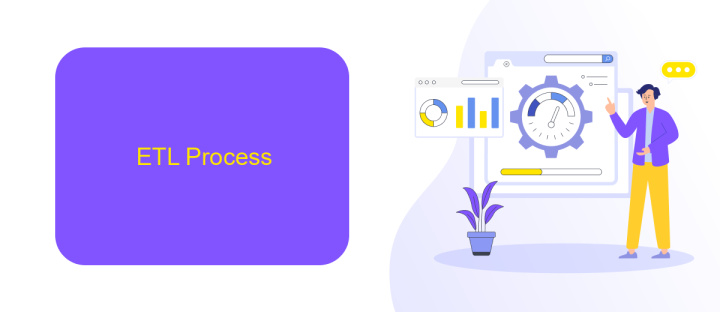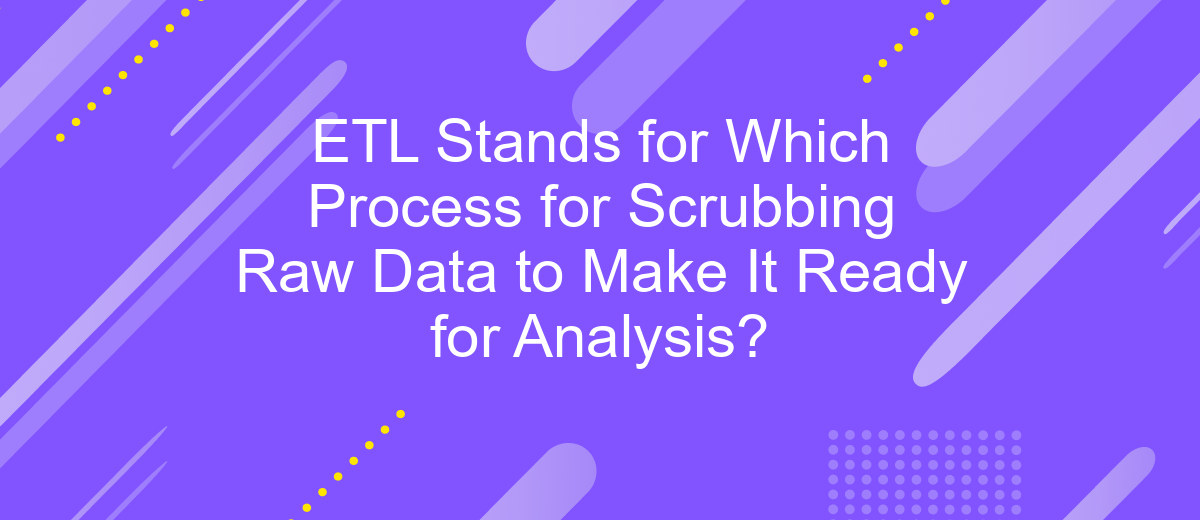ETL Stands for Which Process for Scrubbing Raw Data to Make It Ready for Analysis?
ETL, which stands for Extract, Transform, Load, is a crucial process in data management that involves extracting raw data from various sources, transforming it into a suitable format, and loading it into a database or data warehouse. This process ensures that data is clean, consistent, and ready for analysis, enabling businesses to make informed decisions based on accurate information.
What Does ETL Stand For?
ETL stands for Extract, Transform, Load, a crucial process in data management that ensures raw data is cleansed and prepared for analysis. This methodology is widely used in data warehousing and business intelligence to integrate data from various sources into a centralized repository.
- Extract: This initial step involves retrieving raw data from different sources such as databases, APIs, and flat files.
- Transform: During this phase, the extracted data is cleaned, formatted, and transformed to meet the requirements of the target system. This may include data normalization, deduplication, and enrichment.
- Load: The final step is loading the transformed data into a data warehouse, database, or another target system for analysis and reporting.
Using services like ApiX-Drive can simplify the ETL process by automating data extraction and integration across various platforms. This ensures a seamless flow of accurate and consistent data, making it ready for insightful analysis. ApiX-Drive offers a user-friendly interface and robust features to manage data workflows efficiently, saving time and reducing errors.
ETL Process

The ETL process, which stands for Extract, Transform, Load, is essential for converting raw data into a format suitable for analysis. During the extraction phase, data is collected from various sources such as databases, APIs, and flat files. This step is crucial for gathering all necessary information, ensuring that no critical data is left out. Services like ApiX-Drive can facilitate this process by automating data extraction from multiple sources, thereby saving time and reducing errors.
Once the data is extracted, the transformation phase begins. This involves cleaning, filtering, and structuring the data to meet specific requirements. Operations such as removing duplicates, handling missing values, and standardizing formats are performed to ensure data quality. Finally, the transformed data is loaded into a target system, such as a data warehouse or a database, where it becomes accessible for analysis. The ETL process ensures that the data is accurate, consistent, and ready for insightful analysis, ultimately driving better decision-making.
Benefits of ETL

ETL (Extract, Transform, Load) processes offer numerous benefits for organizations looking to make their raw data ready for analysis. By implementing ETL, businesses can ensure that their data is clean, consistent, and readily available for generating valuable insights.
- Data Quality Improvement: ETL processes help in scrubbing and cleaning data, removing inconsistencies and errors, resulting in higher quality data for analysis.
- Centralized Data Management: ETL allows for the integration of data from multiple sources into a single, centralized repository, making it easier to manage and analyze.
- Enhanced Decision Making: With clean and well-organized data, businesses can make more informed decisions based on accurate and comprehensive insights.
- Time Efficiency: Automating the ETL process saves time and resources, allowing analysts to focus on interpreting data rather than cleaning it.
- Scalability: ETL processes can be scaled to handle increasing volumes of data, ensuring that the system grows with the organization's needs.
For seamless integration and automation of the ETL process, services like ApiX-Drive can be invaluable. ApiX-Drive simplifies the setup of data pipelines, enabling businesses to connect various data sources effortlessly and ensure continuous data flow for analysis.
Challenges of ETL

Extract, Transform, Load (ETL) processes are essential for converting raw data into a format suitable for analysis, but they come with several challenges. One major challenge is managing the sheer volume of data, which can be overwhelming and difficult to process efficiently. Additionally, ensuring data quality and consistency is critical, yet often problematic due to discrepancies and errors inherent in raw data.
Another significant challenge is the integration of various data sources. Different systems may store data in different formats, making it difficult to consolidate them into a single, cohesive dataset. This is where services like ApiX-Drive can be extremely beneficial, as they provide tools to automate and streamline the integration process.
- Handling large volumes of data efficiently
- Ensuring data quality and consistency
- Integrating diverse data sources
- Maintaining data security and compliance
Lastly, maintaining data security and compliance with regulations such as GDPR can add another layer of complexity to ETL processes. Ensuring that data is handled securely throughout the ETL pipeline is crucial to protect sensitive information and maintain regulatory compliance.
- Automate the work of an online store or landing
- Empower through integration
- Don't spend money on programmers and integrators
- Save time by automating routine tasks
ETL Tools
ETL tools are essential for transforming raw data into a structured format suitable for analysis. These tools automate the extraction, transformation, and loading processes, ensuring data consistency and integrity. Popular ETL tools like Apache NiFi, Talend, and Microsoft SSIS offer robust solutions for handling large volumes of data from diverse sources. They provide user-friendly interfaces and pre-built connectors, simplifying the integration of various data sources and destinations.
For businesses looking to streamline their data integration processes, services like ApiX-Drive can be invaluable. ApiX-Drive offers a no-code platform that allows users to set up and manage data integrations effortlessly. With its wide range of connectors and intuitive interface, ApiX-Drive enables businesses to automate data workflows without the need for extensive technical expertise. This makes it easier to ensure that data is accurate, timely, and ready for analysis, ultimately enhancing decision-making processes.
FAQ
What is ETL?
Why is data scrubbing important in the ETL process?
Can ETL processes be automated?
What types of data can be processed using ETL?
How often should ETL processes be run?
Apix-Drive is a simple and efficient system connector that will help you automate routine tasks and optimize business processes. You can save time and money, direct these resources to more important purposes. Test ApiX-Drive and make sure that this tool will relieve your employees and after 5 minutes of settings your business will start working faster.


